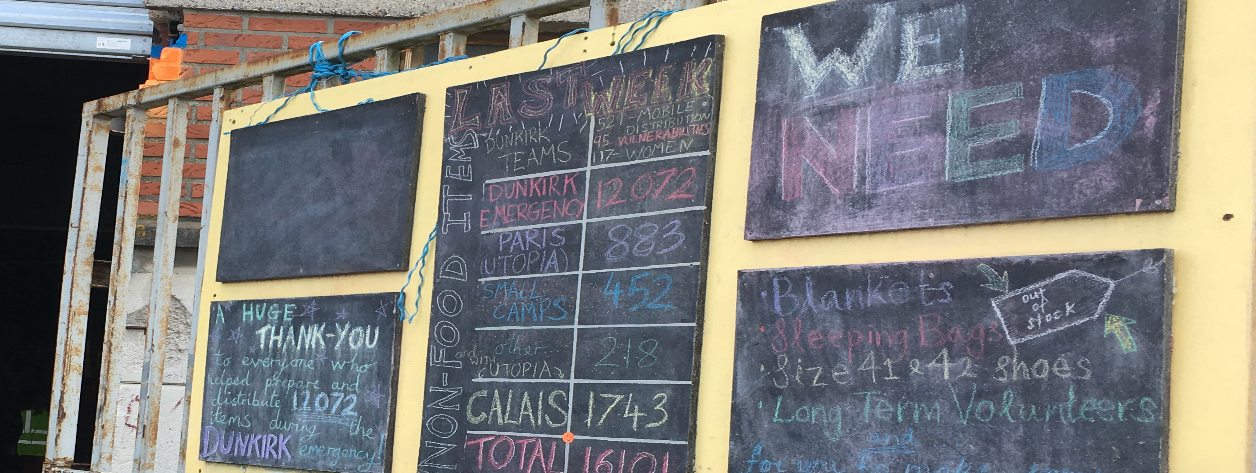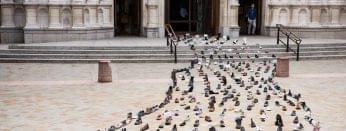Report from Phil Kerton, Co-Director of Seeking Sanctuary (CSAN member)
Seeking Sanctuary aims to raise awareness about people displaced from their homes, and to channel basic humanitarian assistance from faith communities and community organisations via partnerships with experienced aid workers. Their special concern is for migrants who arrive in north-western France.
Phil Kerton visited Calais on 30 May 2017, taking clothing, cash and bedding donated by various groups and individuals.
More volunteers with jobs in education support us during school holidays. Various busy groups of volunteers are using corners of the warehouse run by “Help Refugees” on behalf of l’Auberge des Migrants. More volunteers and donations are still needed as the local migrant population increases.
The Refugee Community Kitchen was running at high capacity, serving 1,300 people a day at 4 different distribution points: lunch and dinner in Calais for 550; dinner in Dunkirk for 200; plus 600 lunch and night-time food boxes for new arrivals and the most vulnerable, not to mention making flapjacks for partners who care for migrants in Paris, and providing 1,000 litres of clean water per service in Calais. Volunteers chop, stir, wash, pack, drive, serve and then come back and do it all over again many times a day, 7 days a week with never ending enthusiasm and smiles.
The kitchen needs help more than ever: people can get a volunteer pack about how to come to the kitchen, where to stay in Calais, and much more, by sending an email to refugeecommunitykitchen@gmail.com – or money can be donated on-line.
The Developing Situation
Travelling around the town, small groups of young migrants can be seen, with increased visibility due to the fresh increase in numbers since the start of the year. With this, the police presence has also increased.
The former “jungle” has been dispersed. Migrants have been returning for months, joined by new arrivals, but this territory is forbidden to them. Some are sheltered by local families, but with a ban on building shelters or erecting tents, hundreds sleep rough in patches of woodland in the adjoining industrial estate and in a few other locations close to lorry parks and motorway slip roads. Aid workers agree that there are around 1,000 in and around the town and almost as many more scattered along the coast and in villages and countryside near main roads and motorways.
Newcomers – with a significant proportion of youngsters – arrive exhausted, unwashed and unwell. The need for humanitarian aid has risen as the Calais warehouses have been prevented by the police from supplying many distant locations.







